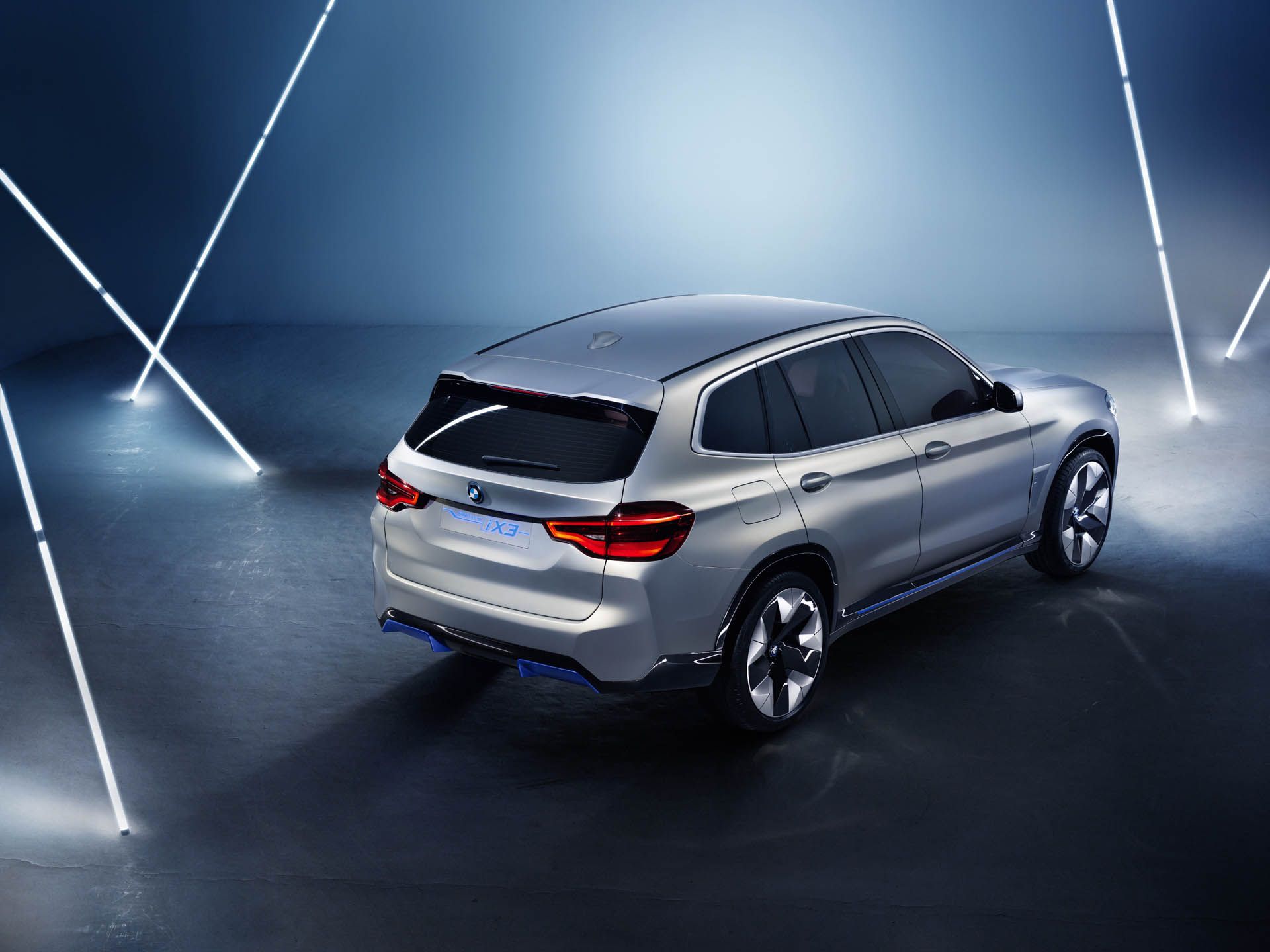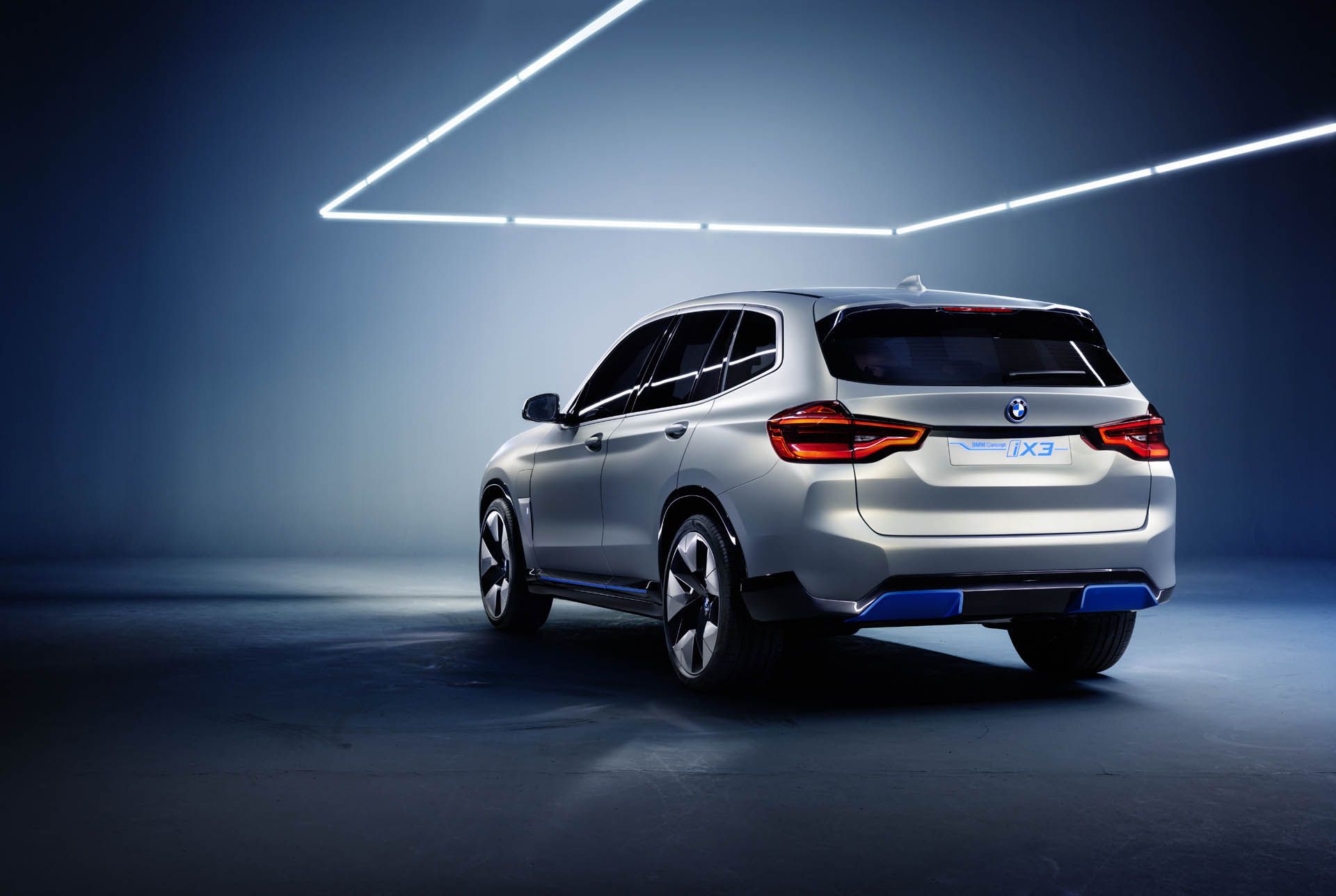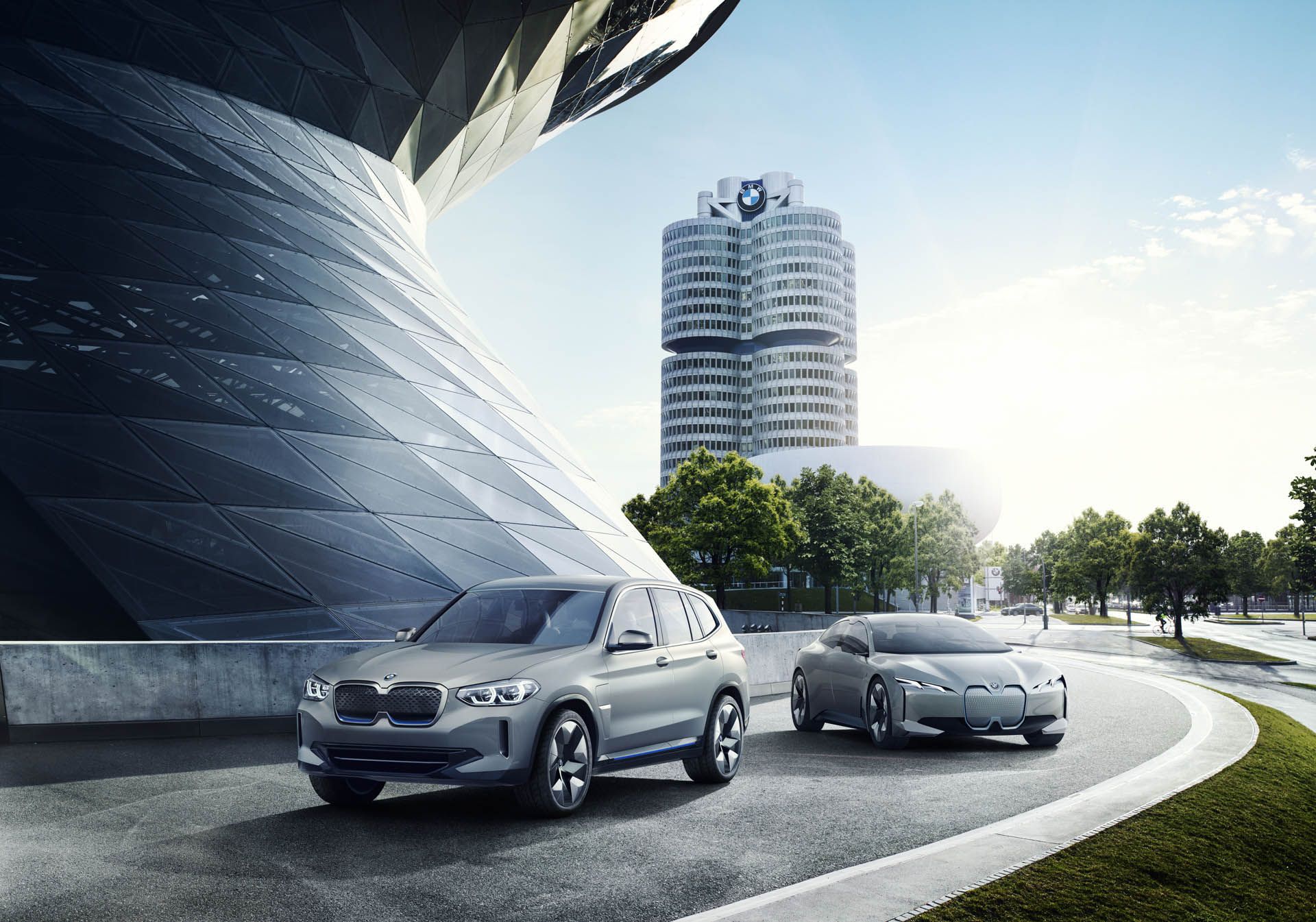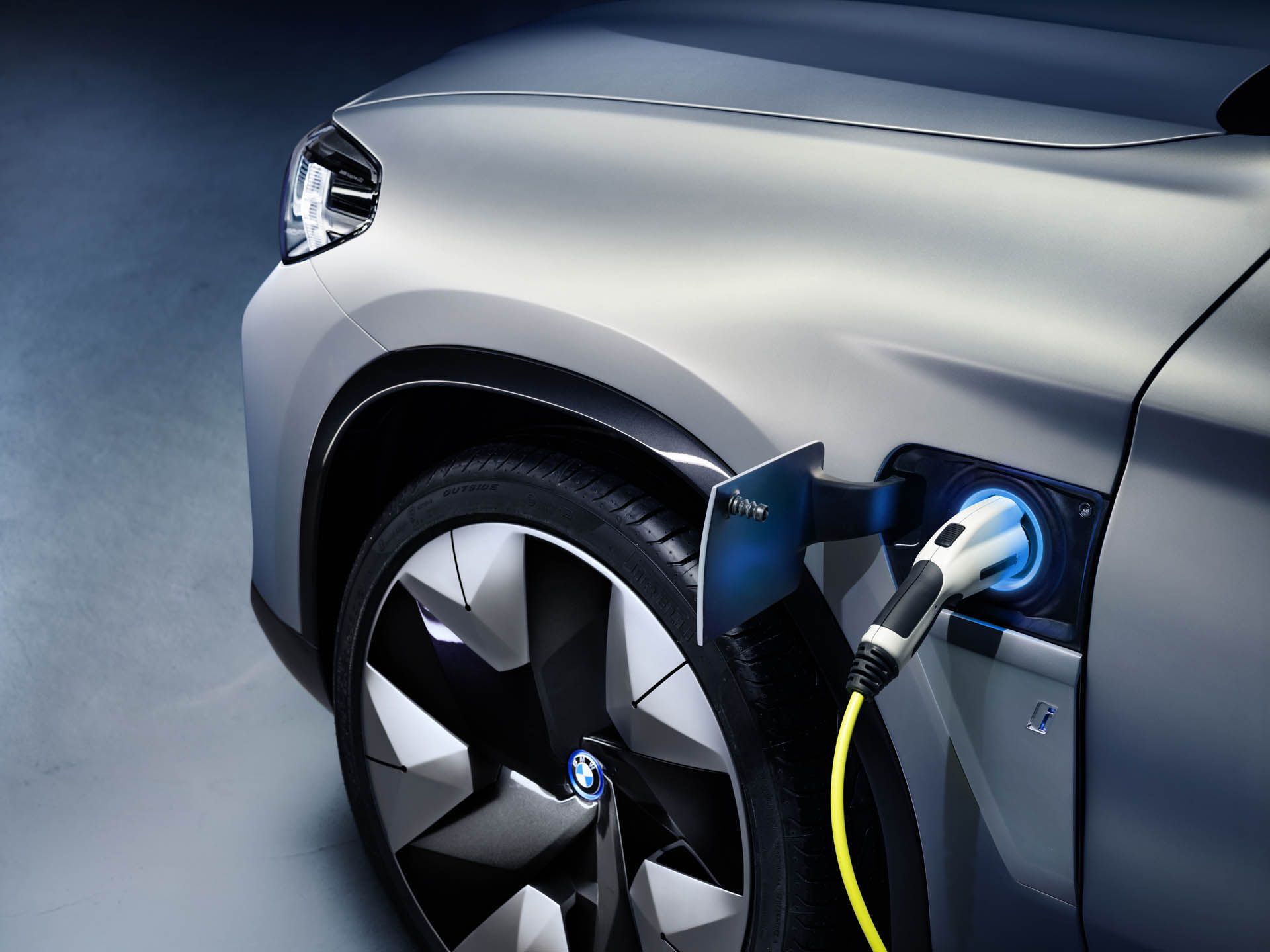BMW Concept iX3 Ushers In A New Era Of Electric Bimmers In Beijing
BMW has, until now, kept its electric vehicles apart from its main lineup. But with the debut of the Concept iX3, it’s bringing them into the fold .
Unveiled at the Beijing Auto Show, the iX3 forecasts a fully electric version of the German automaker’s compact crossover. (Or “sports activity vehicle,” in Bimmer corporate parlance.) And while it’s billed as a concept, it previews a production version to follow. A proliferation of them, in fact.
The concept is clearly based on the production X3 that was just revealed in its third iteration last summer. But without any fossil fuels combusting inside, most of the intakes and vents in the bodywork have been closed off. That leaves it with a more streamlined (dare we say “futuristic”) appearance. Even the grille is blanked out, but the frame remains – albeit with a modified shape. The separate twin kidneys that have historically characterized the front end of all Bimmers have merged here into one shape. The result, to our eyes, starts to look more like Kia’s tiger-nose grille design. And it may come as a bit of a shock to traditional Bimmerphiles.
The real novelty here, though, is what’s behind that grille (functional or not). The iX3 packs an electric powertrain good for 270 horsepower (200 kW). That’s a little more than the conventional gasoline X3 xDrive30i model and the diesel xDrive30d, but less than the top M40i. With a 70-kWh battery, BMW says it will go for 249 miles (400 kilometers) under the new Worldwide Harmonised Light-Vehicle Test Procedure (WLTP). And hooked up to a 150-kW quick-charger, it’ll charge up in just 30 minutes.
Potentially more important than the specs of BMW’s fifth-generation electric powertrain is what the manufacturer will be able to do with it. Integrating the electric motor, transmission, and control module into one component, it’s designed to be both lighter, and easier to swap into a wider variety of vehicles. And that includes models originally designed for internal-combustion engines. The powertrain also does without any rare earth metals, whose scarcity has been a major impediment in the widespread adoption of electric power.
BMW has already confirmed that it will build a production version of this concept through its joint venture with Brilliance Automotive in Shenyang, China. No word on other markets just yet, but we won’t be surprised when something like this starts rolling off the line in Spartanburg. Beyond this model, though, we can expect the same approach to be applied to other models in BMW’s core range. Those will serve to bridge the gap between the automaker’s iPerformance plug-in hybrids and dedicated electrified models like the i3 and i8.
Carscoops







Comments
Post a Comment